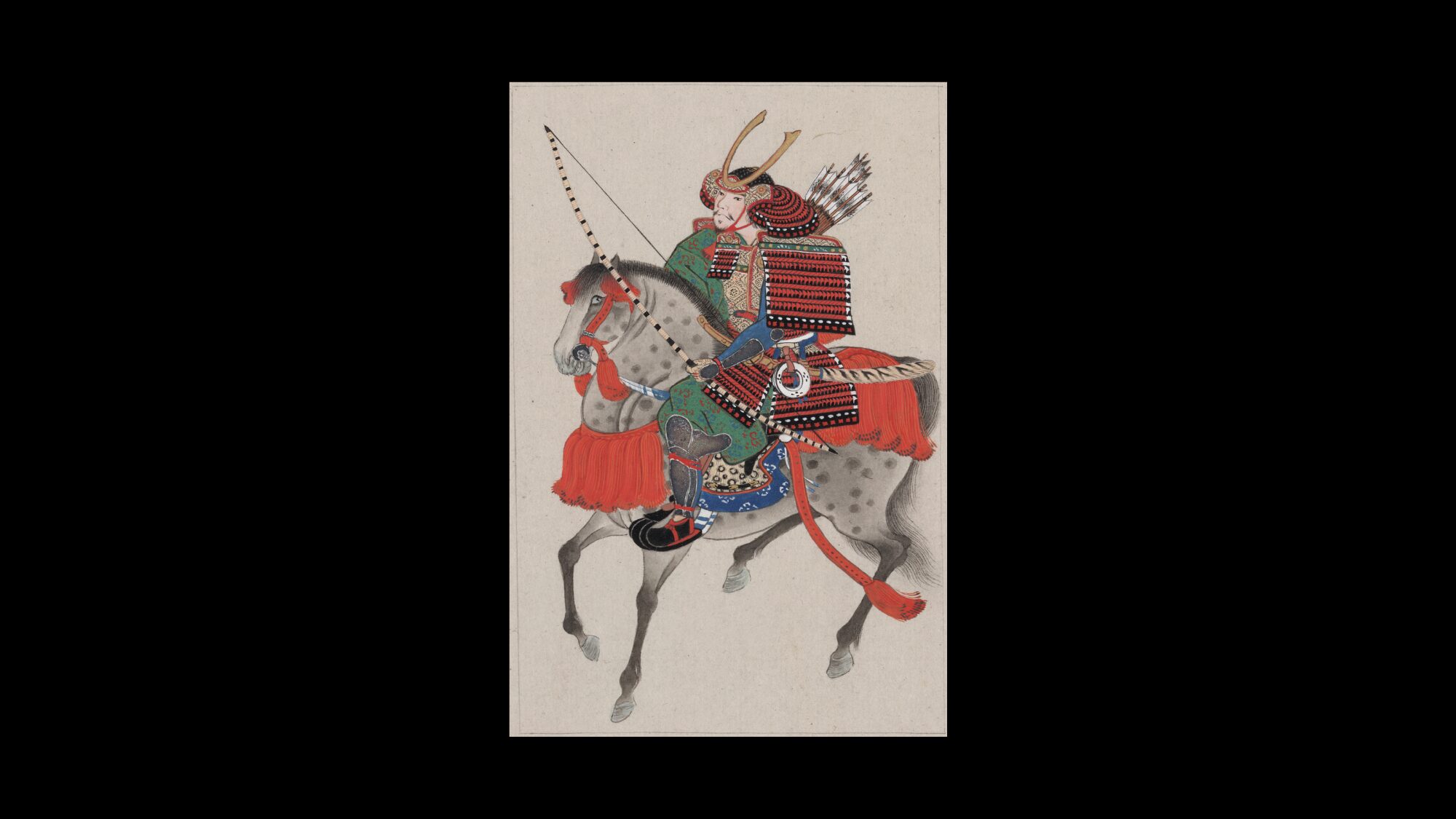In a far-off land, a faithful soldier of the common rank of bushi stood watching his tiny son, wondering over the boy’s origination and destination. He was a good soldier and practiced Bushido, the way of the warrior, in all of his affairs. At the birth of the boy, he had rejoiced. It was his second child but his first son. The baby had been healthy and strong at his birth. He is like me, thought the warrior.
In the beginning he assumed that his son would be filial, attaining and maintaining the rank of bushi in honor of his family’s name, as the Bushi himself had done. For the first two years there was no question of this. The other soldiers commented frequently upon the baby’s robust frame and nature. The warrior was very proud and certain then of his patronage. But a strange and discouraging thing came to pass when the warrior’s young wife gave birth to their third child, a daughter.
***
Soon after the birth of the third child came the ceremony marking the Bushi’s son’s third year of life, a festive celebration of survival. It was then the Bushi’s son, for the most part, ceased eating. No one could encourage, cajole, nor even coerce the boy to allow himself proper nourishment. The boy grew frail, and his parents dreaded, silently, the coming winter.
The warrior foresaw trouble. For he now saw with his eyes and sensed with his heart that his child was not like him. For a bushi, any divergence, be it from rank or form, was potentially a grave error, and so the father’s heart was grieved. He suffered in the anticipation and eventually the realization that his son was not bushi. And, within the poverty of his own heart, he felt dishonored.
The young mother believed that her son resented the new baby, and so he refused food, to punish her for interrupting the perfect harmony of mother and son. This misconception grew, knotting itself within the mother’s womb. She feared that her only son would die, and she believed herself to be guilty.
The Bushi sensed his devoted wife’s guilt and began to silently question her fidelity, as the boy, who had begun life so much in his own oaken image, took on a refined appearance. Though, he reminded himself, my son’s face was always beautiful, like his mother’s.
The boy appeared oblivious to the secret distress of his parents deep and separate concerns, but he was not. He merely dismissed their emotion and concern for what it was: Delusion.
Upon his sister’s arrival, he smiled into her impish newborn face and welcomed her.
Her arrival allowed him to begin his journey. She had come willingly to intercede and replace him in their mother’s arms and at what would have been her lonely breast. His mother was forced to release her hold upon his being. He could now begin. For love of his mother he had delayed his purpose this long. So began the Little Monk’s pilgrimage, with a fast.
His father’s misconception slid like a raindrop off his button nose. His mother’s worries were but a cloud passing across the blue sky. He would grow someday, indeed, to be a great and filial warrior in a dimension his father had not yet even glimpsed, in service to a lord far greater than the Bushi’s.
Still but an infant in his own right, the child was no bastard, let alone, a resentful bastard. The demon of resentment had been exiled to his future, being forbidden to duel with him until the appointed hour, after his first gempuku, a ceremony marking the name he would choose for himself as a man. The child was a monk, an aesthetic in its original and purest form. Yet his parents knew him not.
***
Eight years passed, and the child grew, as did the misconceptions of others. Under a late afternoon sun, on a lush hillside of conquered, foreign soil stood the Bushi, again watching his son, this time scrutinizing him. The Bushi had been called again to war, and on the morrow, he would travel across the ocean to defend the honor of his lord. His family would, of course, remain behind, as they always did. The Bushi did not believe he would return. As a bushi, to express emotion was unthinkable. His emotions were a burden which were nearly unbearable.
Believing this to be his last chance, he voiced a prayer for enlightenment and waited, hoping that the great mystery of this child would be revealed to him, perhaps in the warm breeze upon his face or in the song of a bird. He loved the boy, but he would not accept him. The boy was graceful, supple, expressive, and artistic, unlike his forbearer or any other bushi the father had ever known in every way.
Not only had the boy remained a stranger to his father, he was proven headstrong, a quality that had bloomed into defiance under his teacher’s misconceptions and his father’s well-used and heavy staff of punishment. Much like in his fasts, the Little Monk refused to acquiesce or perform for others, unless, on rare occasion, it suited him. When it did, the radiance of his keen intelligence enticed every one of them to distraction. Yet always the elders were met with resolute obstinance, which infuriated them. Eventually, his teachers would say, “He is brilliant, but hopelessly lazy.”
“I am not a monkey,” the Little Monk would say, “And the gymnastics of intelligence is but a game for the unwise. I did not come here to memorize what is important to you. It is far more important that I learn to fly.”
They tempted him, baiting him with pride and scorn to rely on his intelligence. This grew intrusive to the boy. So, during his eighth year, he took a vow of silence, speaking only when necessary. “He is insane,” they said, but the boy said nothing.
His elder’s punishment was so severe that it was like torture to his gentle soul. “Who are you?” they asked of him.
“I do not know,” he would answer, “I am waiting to see.”

